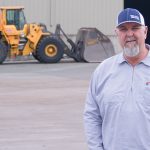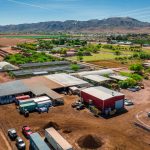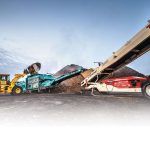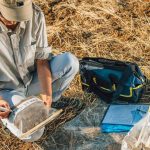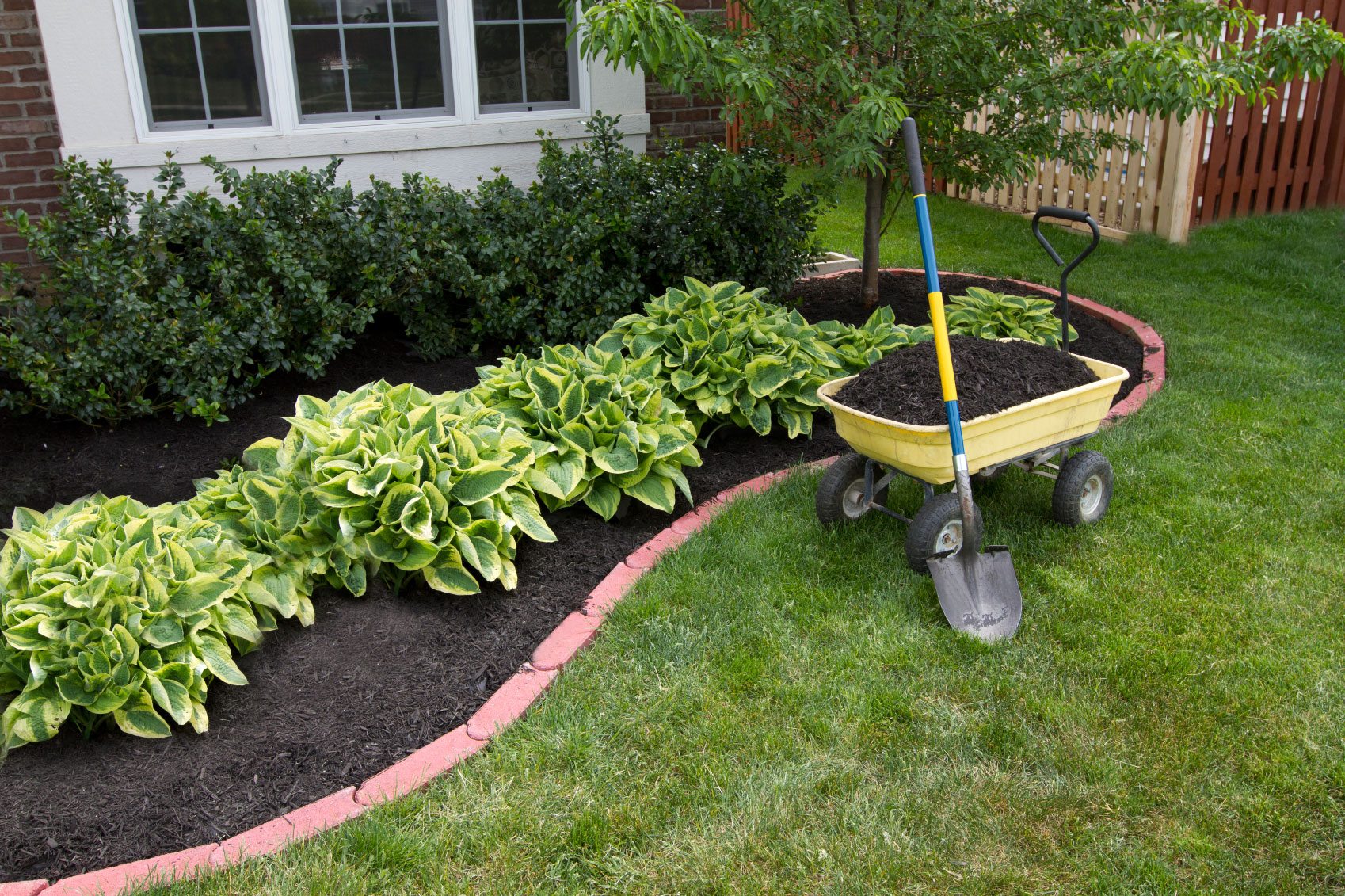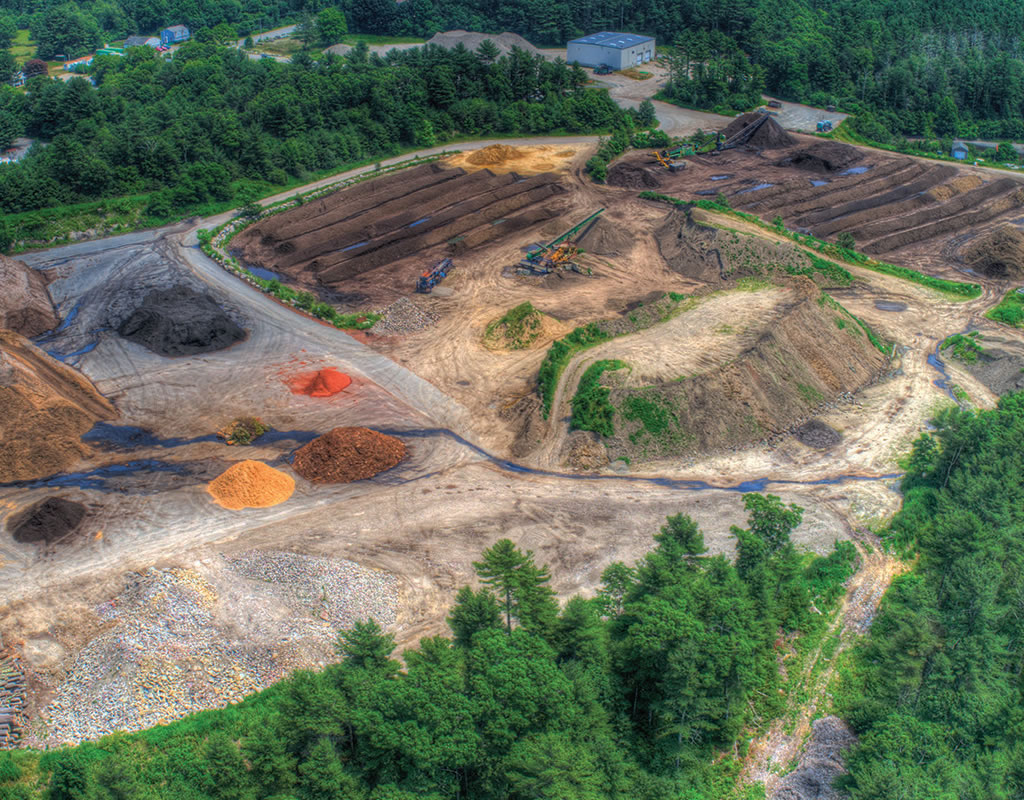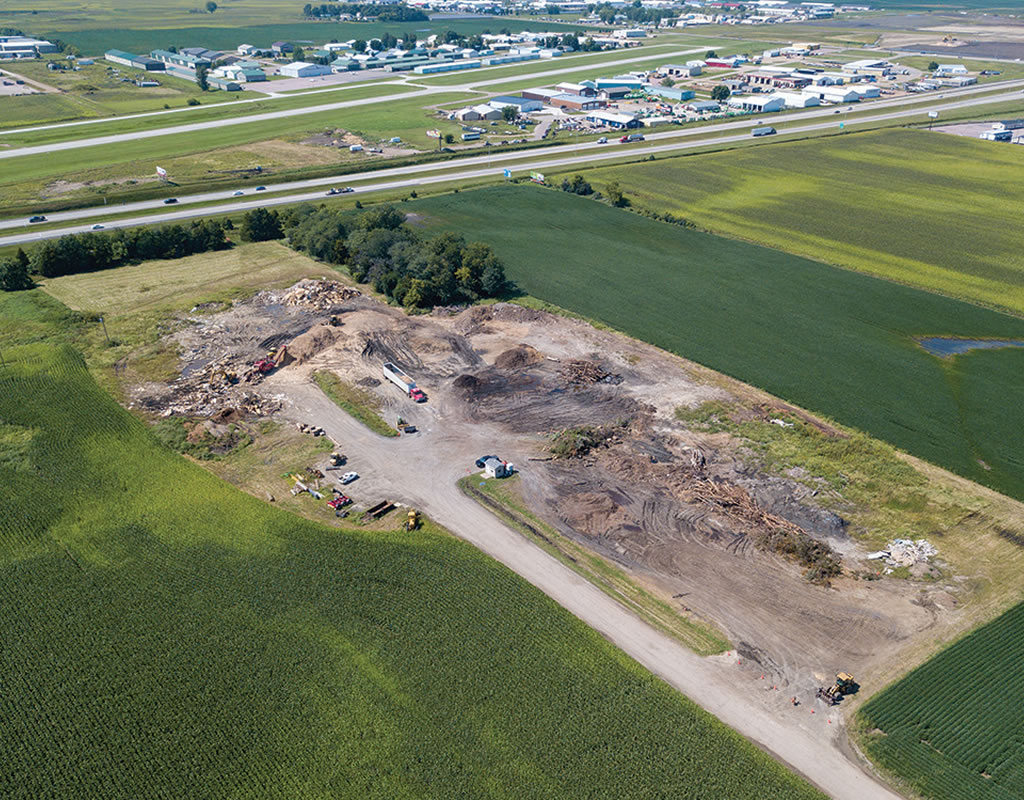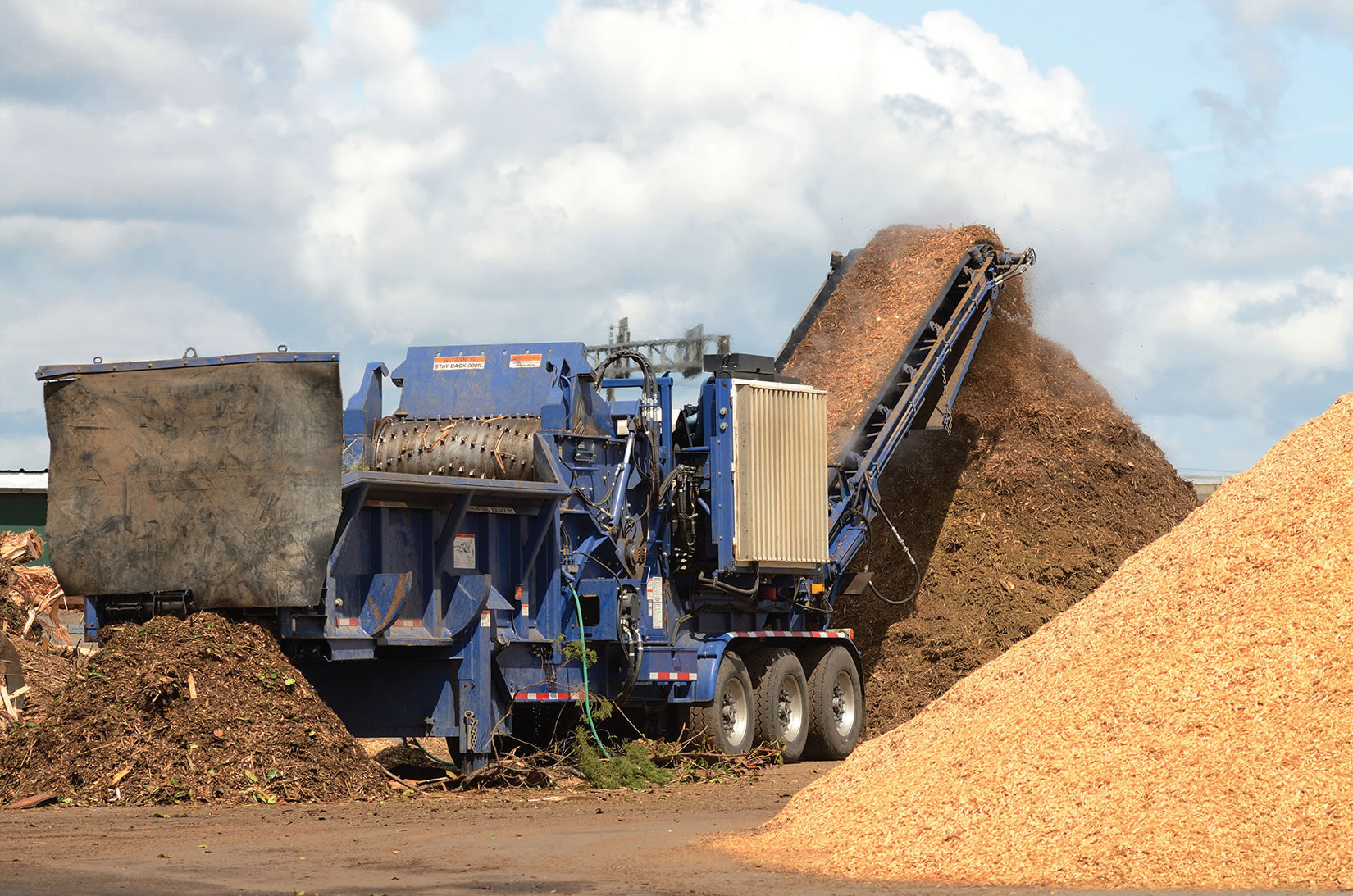By P.J. Heller
Brad Morgan followed the proverbial phrase, “When life gives you lemons, make lemonade,” to create a successful business.
In his case, though, the correct phrase would be, “When life gives you manure, make compost.”
And that’s exactly what Morgan has been doing since 1996, when he and his father, Dale Morgan, launched Morgan Composting and its Dairy Doo product line.
Brad Morgan was no stranger to manure, having started a dairy farm more than a decade earlier with 60 cows in the small farming community of Sears, Mich. Eventually the herd expanded to 240 cows.
“Financially, we were underwater pretty much from the day we started,” he says.
It didn’t help that he was spending some $25,000 in order to spread the cow manure from his farm on neighboring farms who paid nothing for the fertilizer.
“By 1994, I realized I had quite a manure problem,” he recalls.
Two years later, he came up with the idea of composting the manure and approached his father, who was about to retire.
“We took our two nickels, which was about all we had to work with, and rubbed them together and decided to start a compost company,” he says. “Our goal was to find a solution for my manure and to find a way for me to capture enough income to actually stay on the farm.”
That can-do attitude resulted in the Dairy Doo product, which was slowly gaining acceptance in the marketplace.
After the bottom dropped out of milk prices in 1999, Morgan ended up selling his herd of cows.
“My dad said, ‘Now what the heck are you going to do? You’ve got a market started [for compost] but you don’t have any manure.’”
That led Morgan to start working with neighboring farms to help them solve their own manure problems.
Today, Morgan Composting annually hauls in some 200,000 yards of raw manure, the vast majority of it from poultry operations.
“We don’t focus on waste products,” Morgan stresses. “We focus on making manufactured products that make economic sense. That’s got to be our focus.
“We’re kind of a unique composter . . . It’s not that we don’t do some yard waste compost, some municipal compost, [and some food waste], but most everything we do is agricultural byproducts. Most of it then goes to agricultural usage.
“The biggest thing our company focuses on is that composting is a tool. We’re making these products to hit the market . . . it has to make economic sense for our customers to buy it. So everything that comes in is under a microscope. Everything that leaves is under a microscope. We’re very meticulous about what we allow to come in and we’re very meticulous about the products that leave,” he says.
Morgan estimates that 80 percent of the company’s market is large-scale agriculture, everything from corn, soybean, potato and sugar beet crops to orchards and vineyards.
“Michigan is a very very diverse state when it comes to agriculture,” he says. “I don’t know of a crop we don’t work with in some way, shape or form.
“We probably touch over 400,000 acres in Michigan, Indiana and Ohio,” he adds.
Morgan stresses that success doesn’t just come from manufacturing a product and pushing it to the market.
“If you don’t understand the agronomy side of agriculture, just making and selling a product is going to be a hard thing to break into,” he says. “You have to understand the economics of whatever crop you’re trying to make it for. You have to put the products together to fit the crop you're aiming for. Thinking about corn production, you know you have to focus on the nitrogen, potassium, and the values of phosphorus that will fit in. But if you don’t understand all of that, just making a compost product that’s just magically going to fit is probably not likely.”
The company transitioned the large-scale ag market products into a retail line of more than a dozen products for homeowners and gardeners. That line includes soil amendments (Dairy Doo, WormDoo, Compost Tea), potting soils (among them FlowerDoo and VeggieDoo), topsoil blends, fertilizers, and liquid soil amendments.
“All of our potting soils, all of our container mixes, all of our products have not only the Dairy Doo fingerprint, but they also have the fingerprint of our worm castings,” he says. “So that’s the kind of thing that separates us from any other company out there.
“We have multiple products we bring in I would classify as recyclable products that didn’t have a home in the past but now we’re making homes for them,” he adds. “There’s an awful lot of things that we created with the idea that we’re going to leave things better than when we started.”
The products are available in some 130 stores but won’t be found in chain stores or big-box stores.
“We made the choice a long time ago that we did not want to get involved in chain stores,” Morgan says. “All of what we sell is geared toward people who would understand the difference and why we do what we do . . . We want people educated enough to understand that what we do is different and what we do is the right thing to do. We don’t have silver bullets. What we do have is sensible solutions that move things in the right direction.
“We just have a different approach to the marketing side,” he adds.
The company has grown to 40 employees and five additional locations in Michigan, including a warehouse in Marion. Morgan Composting boasts its own sales team, marketing team and distribution network and a retail store on the site of the original dairy farm. It also operates a blending facility, as well as an in-house minilab for testing and it is installing a lab for even better quality control. It offers customers soil testing services with a review of the results and suggestions for improving soil health.
“We have 140 different ingredients we can pick from,” Morgan says. “I can pretty much create a product that makes economic sense to run across the field and spread. If it’s corn, you're going to need a little more nitrogen, a little more phosphorus, a little more potassium, a little more calcium. We can make that kind of an adjustment. If we’re dealing with beans, we don’t want a high level of nitrogen; we can lean more toward potassium blends. We’re even looking now at variable rate spreading.”
Morgan Composting has its own bagging line – in the early days Dairy Doo was shoveled into the bags -- but doesn’t doesn’t yet have the capacity to handle private label bagging.
“We've always sold out of everything we produced. We've always had to expand. Our target growth is 30 percent; this year will be tougher, but we’ll still grow,” Morgan says. “Because of logistics, we will be changing some of our philosophes on where and how we move materials. We move a lot of material. We have to be smarter five years from now than we are today. There’s no way in the world that what we’re doing today is what we’ll be doing five years from now.
“I really do believe the company is not done growing yet.”
Expansion into northern and southeastern Michigan is among the possibilities.
Asked if he was considering expanding outside the region, Morgan says he could “literally take and add a company like this anyplace in the world.
“I know that sounds almost crazy. What we've learned and what we’re doing and where we’re at, the potential for growth for our company in everything from mulch to potting soil to agricultural byproducts . . . I know of a lot of places that have tried but not a lot of places that have succeeded. What we’re doing here…there’s that kind of opportunity for the future.”
Morgan, however, may not be leading that charge into the future.
He is currently in the process of turning over his title as chief executive officer of the company to his son, Justin, who is a co-owner. Two other sons worked in the company but have embarked on other careers.
“It’s important at my age that I become less important rather than more important,” the 66-year-old Morgan says. “The problem that I have is I have a passion for what I’m doing. I love showing up every day. I’m very proud of the staff, the product and what we've done and how this has all played out. I still enjoy it.”
In a video entitled “From Poop to Profits,” Morgan explains that the future for the business is bright no matter who is at the helm.
“When you can take a raw product that has no value and turn it into a product that has extreme value in the marketplace, from large production agriculture to small production agriculture, to homeowner, to garden, golf courses…. it’s wide open,” he says.
Related News
Subscribe Today
Every other month, Soil & Mulch Producer
News brings you important stories about:
• New Technology
• Products
• Industry News
• Research Studies
Soil & Mulch Producer News features articles and services relevant to your daily operations.

